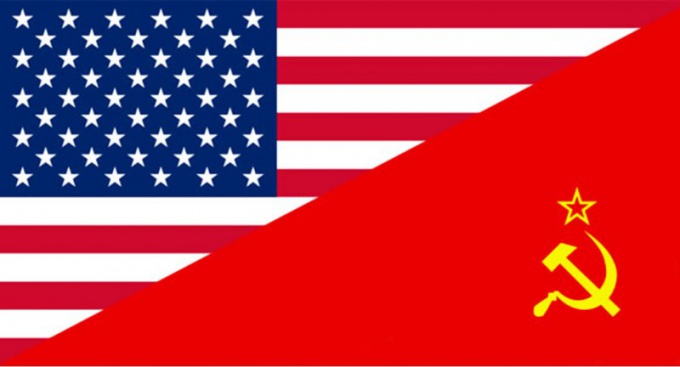Tip 1: How did the term "cold war" come about?
Tip 1: How did the term "cold war" come about?
The phrase cold war is familiar to almost every person living in the post-Soviet space. But the origin of this term is still a matter of controversy.

Essence of Cold War expression
It is customary to call the Cold WarThe historical period from 1946 to 1991, which characterized the relationship between the US and its allies and the USSR and its allies. This period was distinguished by the state of economic, military, geopolitical confrontation. However, this was not a war in the literal sense, so the term Cold War is conditional. Although the official end of the Cold War is considered to be July 1, 1991, when the Warsaw Treaty broke up, but in fact it happened earlier - after the fall of the Berlin Wall in 1989. The opposition was based on ideological attitudes, namely, the contradictions between the socialist and capitalist models. Although officially in a state of war, states were not, but since the beginning of the confrontation, the process of their militarization has been gaining momentum. The Cold War was accompanied by an arms race, and the USSR and the US entered into a direct military confrontation throughout the world 52 times. At the same time, there was a threat of the beginning of the third world war. The most famous case was the Caribbean crisis of 1962, when the world was on the brink of disaster.The origin of the Cold War expression
Officially the phrase Cold War for the first timewas used by B. Baruch (Advisor to US President G. Truman) in a speech in front of the House of Representatives in South Carolina in 1947. He did not focus on this expression, only pointed out that the country is in a state of cold war.However, most experts give the palm of primacy in the use of the term D. Orwell, the author of the glorified works "1984" and "Animal Farm". He used the expression Cold War in the article "You and the Atomic Bomb". He noted that thanks to the possession of atomic bombs, superpowers are invincible. They are in a state of peace that is in fact not a world, but are forced to maintain balance and not use atomic bombs against each other. It is worth noting that he described in the article only an abstract forecast, but in fact predicted the future confrontation between the US and the USSR. Historians do not have an unambiguous point of view as to whether Baruch invented the term himself or borrowed it from Orwell. It should be noted that the Cold War has gained wide popularity worldwide after a series of publications by American political journalist W. Lippman. In the New York Herald Tribune he published a series of articles devoted to the analysis of Soviet-American relations, which were entitled "The Cold War: A Study of US Foreign Policy."Tip 2: How the Cold War began
The Cold War is a global economic,military, geopolitical and ideological confrontation between the USSR and the US, based on the deep contradictions between the socialist and capitalist systems.

The confrontation of the two superpowers, in whichparticipated and their allies, was not a war in the truest sense of this concept, the main weapon here was ideology. For the first time the expression "cold war" was used in the article "You and the Atomic Bomb" by the famous British writer George Orwell. In it, he accurately described the confrontation of invincible superpowers possessing atomic weapons, but agreed not to apply it, remaining in a state of peace that, in fact, is not the world.







